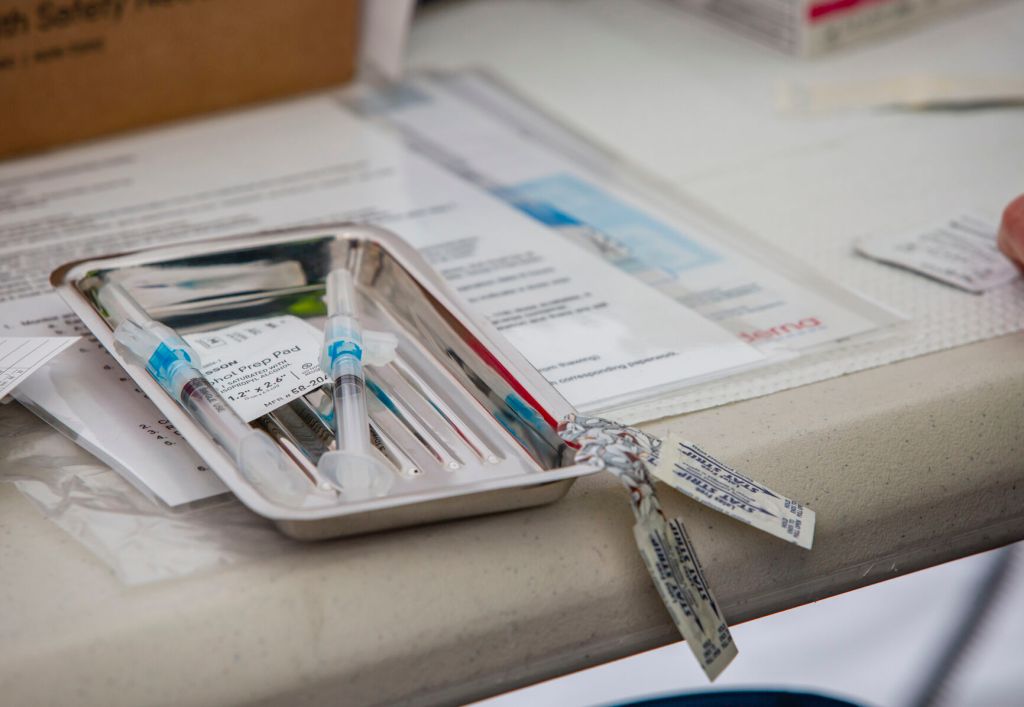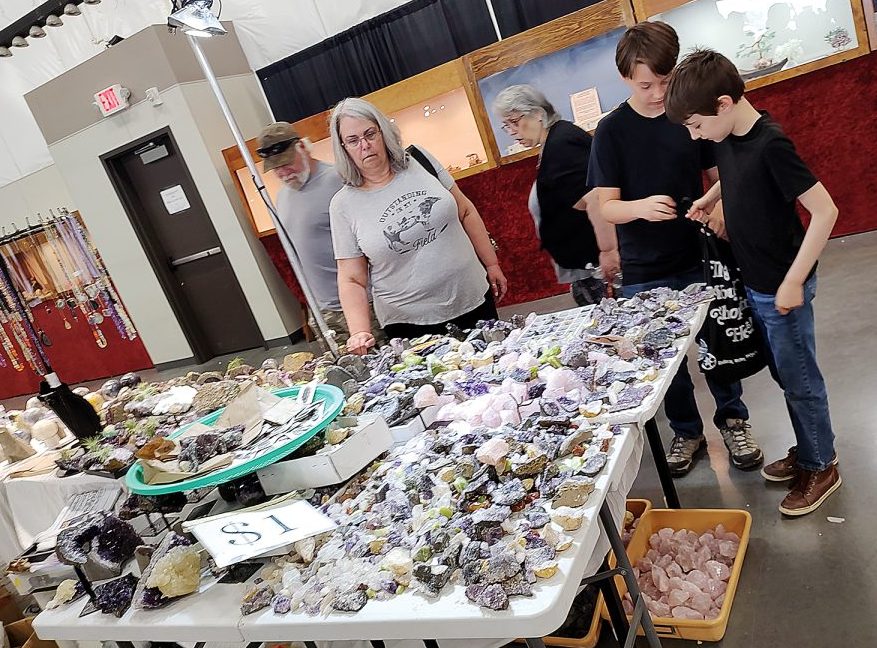Frequently asked questions about the COVID-19 vaccine
Published 2:00 pm Monday, February 8, 2021

- Syringes with doses of the Moderna COVID-19 vaccine sit ready to be administered during a drive-thru COVID-19 vaccination clinic at the Pendleton Convention Center on Jan. 22, 2021.
As the COVID-19 vaccine becomes available to more people, health departments at the state and county level continue to release new information. The following are some frequently asked questions about the availability of the COVID-19 vaccine, compiled from information available from Umatilla County Public Health, the Oregon Health Authority and Centers for Disease Control and Prevention as of Monday, Feb. 8.
When can I get a vaccine?
As the world’s vaccine supply is built up slowly, states must ration the limited supply they receive each week. That means some people who want a vaccine will have to wait months for their turn.
Oregon has divided its vaccine plan into phases, and Oregon Health Authority Director Pat Allen stated it intends to move on to vaccinating a new phase of people when about 70% of the previous phase has been vaccinated. Phase 1A, which began in December 2020, started with frontline hospital workers and moved on to other health care workers, such as dentists and physical therapists. It also included people who work or live in nursing homes and assisted living facilities, first responders, corrections workers and a few other categories, such as caregivers of medically fragile children.
Phase 1B started on Jan. 25 with staff of K-12 schools and child care workers.
People age 80 and older became eligible on Monday, Feb. 8, and that cycle will continue with age 75 and up starting Feb. 15, age 70 and up starting Feb. 22, and age 65 and up starting March 1.
Phase 1C will include people with underlying health conditions that make them more vulnerable to complications from COVID-19, and essential workers. The state has not yet announced what date those categories will become eligible, which health conditions will count or what professions will be considered “essential.”
Eventually, the vaccine will become available to anyone who wants it, but the state has cautioned that likely won’t happen until sometime this summer. If more vaccine versions, such as the completed vaccine by Johnson and Johnson, are approved for use by the Food and Drug Administration, timelines will continue to move up.
When I become eligible to receive a vaccine, how will I know where I can get it?
On a state level, Oregon Health Authority launched a new tool this week called Get Vaccinated Oregon. People can visit getvaccinated.oregon.gov to check their eligibility and register for updates on when they are eligible based on their age, employment and other factors. They can also text ORCOVID to 898211 to sign up for alerts about vaccine news via text message, email ORCOVID@211info.org to sign up for email updates, or call 211 with questions.
For information about local vaccine clinics and appointment opportunities, Morrow County Public Health has encouraged people to call 541-656-5649 or email COVIDVaccine@co.morrow.or.us with questions, and has been publicizing vaccine clinics on its Facebook page. It has also created a sign up list for people who wish to be contacted when they are eligible for the vaccine, accessible on its Facebook page or by emailing the above address.
Umatilla County Public Health has advertised vaccine clinics on its Facebook page and has worked directly with employers, such as school districts and nursing homes, to get the vaccine to more eligible workers. The COVID-19 Vaccination link at the top of the department’s website provides generalized answers about COVID-19 vaccines, but has not included updates about specific clinics so far.
When it is my turn to be vaccinated, what should I expect?
During vaccine clinics, screeners will ask people questions about their age, job and other factors to determine their eligibility for the vaccine, as well as other health questions. Those approved to proceed based on the answers they give will receive a vaccine dose via a shot in their upper arm.
After receiving a vaccine, patients will need to wait 15 to 30 minutes for observation to make sure they don’t have a serious allergic reaction to the shot. After the first week of vaccinations in the United States, the Centers for Disease Control and Prevention reported 21 people out of the 1.9 million who received the vaccine experienced anaphylactic shock, but all were immediately given medical treatment and recovered. Seventeen of those 21 people, the CDC reported, had a prior history of similar serious reactions to other allergens.
Like other vaccines, some people experience arm soreness, fever, muscle aches or fatigue within a day of receiving the COVID-19 vaccine as the vaccine activates a response from the body’s immune system.
While other vaccine versions may be approved by the FDA soon, so far both approved versions — made by Moderna and Pfizer — require a second dose. The Moderna vaccine, which is what Umatilla and Morrow counties have received so far, requires people to wait at least 28 days before receiving their second dose. The Pfizer vaccine requires 21 days between doses, and the Johnson and Johnson vaccine, which may be released soon, only requires a single dose.
When people receive their first dose of a two-dose vaccine, they will receive instructions on when to come back to the same location for their second dose, which will be reserved for them.
What can I do after I am vaccinated?
The Moderna and Pfizer vaccines are both considered 95% effective at preventing COVID-19 infections, and recipients reach that level of effectiveness about two weeks after receiving their second dose.
This information is based on trials of tens of thousands of people who were either given the vaccine or a placebo of salt water. For every 100 people given a placebo who ended up with COVID-19 during the course of the trial, only five people who received the vaccine got sick, and none were hospitalized for their illness or died after testing positive.
What is still unclear pending further research, however, is whether a vaccinated person exposed to COVID-19 might be able to infect a non-vaccinated person.
There are also new mutations of the virus beginning to spread that appear to be better at evading the antibodies created by the vaccine.
Until most of the population is vaccinated, then, scientists highly recommend that vaccinated people still exercise caution, including wearing masks and social distancing.





